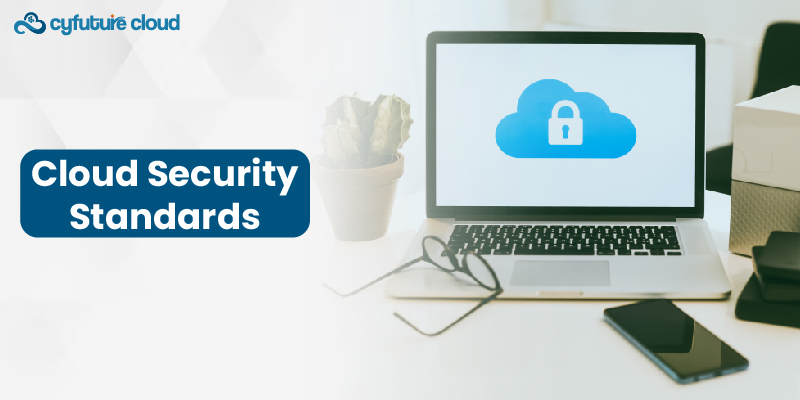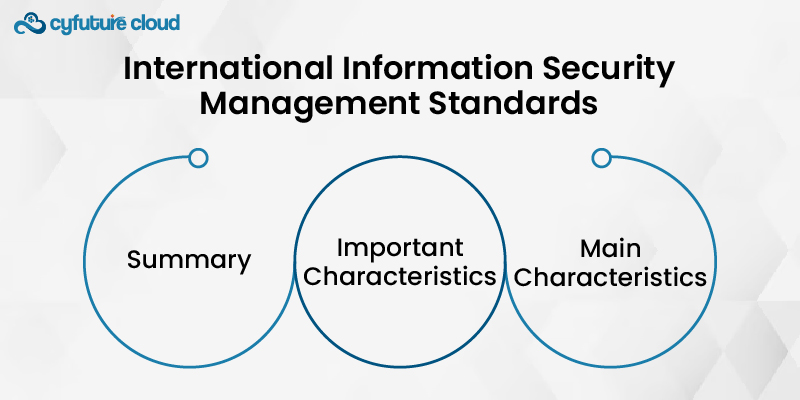 Server
Colocation
Server
Colocation
 CDN
Network
CDN
Network
 Linux Cloud
Hosting
Linux Cloud
Hosting
 VMware Public
Cloud
VMware Public
Cloud
 Multi-Cloud
Hosting
Multi-Cloud
Hosting
 Cloud
Server Hosting
Cloud
Server Hosting
 Kubernetes
Kubernetes
 API Gateway
API Gateway


Cloud security standards are crucial guidelines and frameworks created to assist organizations in safeguarding their data and services in cloud settings. These regulations cover different security aspects such as data security, access control, compliance, and risk management, guaranteeing that cloud services adhere to industry regulations and are secure and dependable. This article gives a summary of important cloud security standards and frameworks for organizations to consider when incorporating cloud services.

Summary:
These globally accepted criteria offer a structure for creating, enacting, upholding, and enhancing information security in a company. They provide a complete range of instructions for handling risks related to information security.
Important characteristics:
- Risk Management involves identifying and systematically managing risks.
- Security Controls: Enforces a wide range of security measures.
- Continuous Improvement promotes continual assessment and improvement of security protocols.
- Extensions tailored specifically for cloud computing.
These add-ons offer customized guidance for cloud environments, providing specific controls for both cloud hosting service providers and customers to ensure security measures that are specific to the cloud.
Main characteristics:
- Guidance specifically for the cloud: Deals with distinct security obstacles found in cloud settings.
These frameworks offer essential security principles to help cloud vendors and aid potential cloud clients in evaluating the overall security risk of a cloud provider. They encompass various security areas, such as data protection, regulatory compliance, and infrastructure security.
Main components:
- Comprehensive Controls: Encompasses various facets of cloud security.
- Conforms to a variety of industry standards and regulations.
- Shared Responsibility Model: Clearly defines security duties for both cloud providers and customers.
Summary:
These recommendations offer suggestions and ideal methods for overseeing information security in government information systems. They provide a strong structure for cloud security management in organizations by detailing security and privacy controls.
Main characteristics:
- Control Families: Groups controls into categories like access control, incident response, and risk assessment.
- Risk Management Framework: Incorporates security measures into the risk management procedure.
- Customizable Controls: Permits organizations to customize controls according to their unique requirements and risk profile.
Summary:
These programs offer a consistent method for evaluating security, granting permission, and regularly monitoring cloud services utilized by government departments. They make sure that cloud services meet strict security standards prior to being used by government agencies.
Main characteristics:
- Standardized Approach: Provides a uniform method for evaluating and authorizing security.
- Continuous monitoring entails the need for consistent security evaluations and surveillance of cloud services.
- Certification: Implements a certification procedure for cloud service providers to guarantee compliance with federal security standards.
Summary:
These extensive regulations on data protection impose stringent guidelines on safeguarding individuals' privacy and personal information. They impact global organizations that handle personal information, making sure data protection rules are followed.
Main Characteristics:
- Data Protection Principles consist of principles such as minimizing data gathering, controlling data utilization, and guaranteeing data precision.
- Data subjects have the right to access, rectify, and erase their own data.
- Organizations must demonstrate compliance with data protection regulations to be accountable.
These criteria aim to safeguard payment data and guarantee the security of cardholder information. They are applicable to organizations managing payment data, guaranteeing that confidential information is protected in cloud settings.
Main characteristics:
- Security Measures: Details particular security measures to safeguard payment information.
- Requirements for compliance include regular security assessments and audits to be conducted.
- Data Encryption: Requires the encryption of confidential payment information during transmission and while stored.
It is essential for organizations to implement strong cloud security standards to protect their data and services in cloud environments. Organizations can guarantee that their cloud services are secure, dependable, and in line with industry regulations by implementing these standards. Companies may select the best solution for their particular needs and risk tolerance by using the distinct rules and criteria provided by each standard. In order to safeguard your cloud infrastructure as cloud technology advances, it's critical to keep up with the most recent security guidelines and recommended practices.

Let’s talk about the future, and make it happen!
By continuing to use and navigate this website, you are agreeing to the use of cookies.
Find out more


